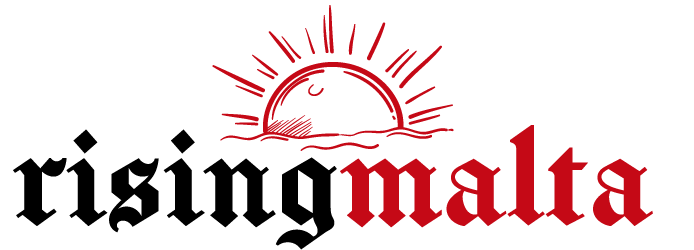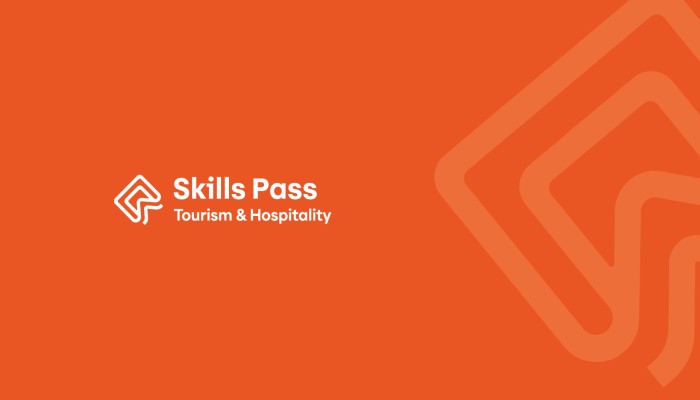
Malta’s New Skill Pass System: A Roadblock or a Solution for the Catering and Hospitality Industry?
Nazmul Istiak, LL.B, LL.M , BA( Hon’s) , UK – Restaurant Operator Malta , Published: April 9, 2025, 7:04 am

Malta’s New Skill Pass System: A Roadblock or a Solution for the Catering and Hospitality Industry?
By Nazmul Istiak, LL.B,
LL.M , BA( Hon’s) , UK – Restaurant Operator Malta
Malta, a stunning Mediterranean island
known for its sun-kissed shores, vibrant culture, and rich history, attracts
millions of tourists each year. Tourism remains a cornerstone of the Maltese
economy, fueling demand for services in hospitality and catering — from
boutique restaurants to high-end hotels.
Yet, the island is currently facing a
critical shortage of skilled hospitality workers. To bridge this gap, Maltese
employers increasingly rely on Third Country Nationals (TCNs) — non-EU
nationals — who are willing to take up key roles in kitchens and restaurants.
In response, the government introduced a new policy in 2024: the Skill Pass
system.
Marketed as a standardisation tool to
certify skills and ensure service quality, the Skill Pass is now
mandatory for all non-EU catering workers. But instead of easing recruitment
challenges, it has sparked widespread confusion, criticism, and frustration.
❓
What Is the Skill Pass?
The Skill Pass is a four-module,
AI-delivered online course created by the Institute of Tourism Studies
(ITS). Its goal is to evaluate workers’ readiness for Malta’s catering
sector. Applicants are expected to complete and pass the course — at a cost of
approximately €475 — before proceeding with employment and visa processes.
While the objective may seem reasonable,
industry experts argue that the system is disconnected from the reality of
working in hospitality.
🧤
Kinaesthetic Skills: Missing from the Curriculum
In catering, kinaesthetic skills —
the physical ability to perform tasks like slicing, stirring, plating, or
operating kitchen equipment — are essential. Yet, these practical elements are
noticeably absent from the Skill Pass, which heavily emphasizes theory
and abstract knowledge.
Many chefs and restaurant owners feel the system overlooks the hands-on nature of their work. Instead of measuring what workers can do, it tests what they can remember — and sometimes, that knowledge is completely unrelated.

⚠️
A Deep Dive into the Criticism
1. ❌ Irrelevant Exam Content
Workers are reporting strange and
unrelated questions, including ones about Maltese politics or administrative
procedures, rather than food hygiene, kitchen safety, or customer service — the
core of any catering job.
" "Why
should a chef from India or the Philippines need to know who the Prime Minister
of Malta is or what his duties are just to fry an egg?" — questions a
frustrated employer in Sliema.
🤖
AI-Only Course Delivery
The course is fully automated and lacks
human touch. There is no real-time teacher, mentor, or practical
demonstration. For many foreign applicants unfamiliar with online learning,
this format feels robotic, confusing, and impersonal.
3. 📉 High Failure Rates in
Phase 2
Even well-prepared applicants report
failing Phase 2 of the course. Language barriers, unclear questions, and
internet issues are common complaints. Worse still, only one free resit
is allowed. Additional attempts require more payment, adding financial pressure
on already-struggling applicants.
4. 🌍 Global Inequality in
Access
TCNs from rural or developing regions
often lack access to fast internet or up-to-date devices. Since the exam is
online-only, the system inadvertently excludes thousands of otherwise
capable workers.
5. 💸 High Costs and Lack of
Transparency
With fees of nearly €475 per applicant,
the Skill Pass is expensive — especially for those coming from low-income
countries. Even more concerning, payments are being directed to a bank
account in Ireland, raising eyebrows over transparency and public
accountability.
With over 15,000 applicants enrolled,
the total funds raised exceed €7.8 million, yet no detailed financial
report has been made available to the public.
6. 🍛 No Specialisation for
Ethnic Cuisines
Malta's culinary scene thrives on diversity. Restaurants specialising in Indian, Chinese, Thai, Turkish, and Filipino food are popular with tourists. But the Skill Pass offers no recognition of specialisation, making it harder for such restaurants to justify hiring niche chefs
.
7. 🕓 Time-Consuming and
Delays Hiring
The process, which takes 3 to 4 months,
delays visa processing and staffing. For seasonal businesses trying to gear up
for summer, this delay is devastating.
8. 💬 No Preparation or
Training Support
There is no official preparation or
classroom course provided before the Skill Pass exam. Many applicants are
left to figure it out themselves, often relying on unofficial, inconsistent
sources for help.
🛂
Visa Rejections After Passing Skill Pass
Shockingly, passing the Skill Pass doesn’t
guarantee a job. Many applicants still face visa rejections, with no
refunds on the €1,500–€2,000 typically spent on:
- Visa
application fees
- Travel
insurance
- Medicals
- VFS
service charges
- Flight
booking
- Accommodation
Both employers and workers lose, financially and emotionally. Employers are left without workers, and applicants lose significant sums of money without any employment or security.

🧭
What’s the Way Forward?
To rescue Malta’s struggling hospitality
sector and rebuild trust in the system, industry experts propose the following
reforms:
- Complete
Skill Pass Training in Malta After Arrival
Workers can train during probation while on the job, ensuring skills are assessed in real-world kitchens. - Employer-Led
Single Permits and Applications
Employers should handle single permit and visa processing directly — reducing reliance on costly intermediaries. - Introduce
Specialisation for Ethnic Cuisine
Allow applicants to choose a track based on their culinary background — Indian, Chinese, Turkish, etc. - Content
Created by Experts, Not Robots
Courses should be developed and delivered by real chefs, trainers, and hospitality managers. - Fairer
Retake Policies and Support
Offer free or low-cost exam resits, prep courses, and live support to make the system more accessible and equitable 
📉
A Crisis in the Making?
Reform Is Urgently Needed
While the Skill Pass may have been
designed with good intentions, its current implementation is flawed, non-practical,
and commercially exploitative. It does not reflect the real skills
required in the catering industry, and it discourages skilled workers from
choosing Malta as a destination.
If Malta wants to maintain its reputation
as a leading tourist hub, it must listen to the voices of employers and
employees and reform the Skill Pass system to be fair, transparent, and
industry-relevant.
Without reform, Malta’s tradition of hospitality — once the pride of the nation — is at risk. Dozens of family-run restaurants are already closing due to staffing shortages. If nothing changes, more closures are likely.Malta has always opened its arms to the world. It’s time the system reflects that same spirit — fair, inclusive, and supportive of those who keep the island’s tourism thriving.
If Malta wants to remain a top-tier
tourism destination, it must support its hospitality workers, respect
the needs of local employers, and build a fair, transparent, and practical
system that works for everyone.